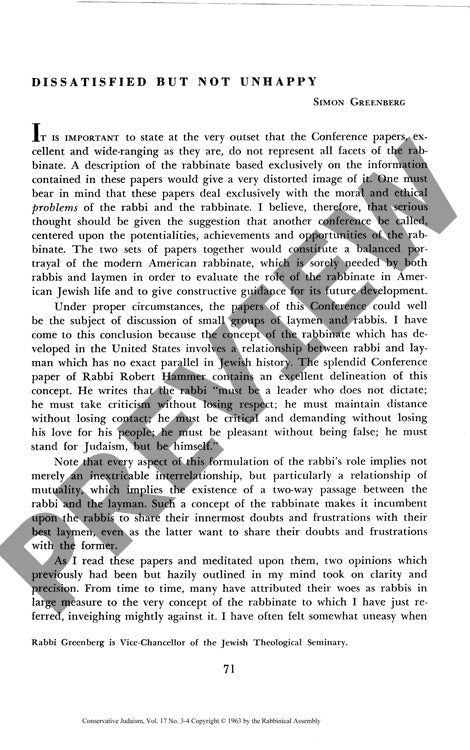Dissatisfied but Not Unhappy
Couldn't load pickup availability
Modern American rabbis face a fundamental identity shift, evolving from the traditional Eastern European model of cloistered scholar-judge to democratic spiritual leaders who "lead but do not dictate." Through analysis of conference papers addressing moral and ethical challenges, this qualitative study reveals how contemporary rabbis navigate their complex role while maintaining both congregational proximity and spiritual authority. The comparative analysis, supported by theological and philosophical argumentation, demonstrates that today's rabbis experience heightened psychological burden due to their perceived responsibility for congregational spiritual welfare, often leading to self-accusation when confronted with Jewish assimilation. Despite these inherent frustrations, the modern rabbinic concept represents a "glorious and noble" evolution suited to democratic society. The research establishes four evaluative criteria for rabbinic sincerity: joy in colleagues' success, courage under stress, acts of loving-kindness, and serving God with dissatisfied but not unhappy disposition. Ultimately, rabbis occupy a distinctive position "between the dead and the living" in contemporary Jewish spiritual leadership, maintaining essential dialogue with the Jewish masses about spiritual rather than merely philanthropic matters.

More Information
-
Physical Description
-
Publication Information
Published 1963
ISBN
-
Publication Credits
Simon Greenberg

